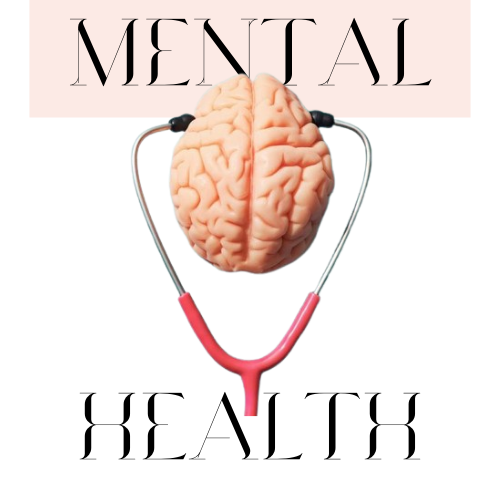Good mental health doesn’t mean a lack of illness. Mental wellbeing is also about feeling balanced, how we cope with our everyday ups and downs, being able to perform everyday activities, and maintain healthy relationships. Mental wellbeing can be influenced by our everyday actions, thoughts, and all of what we consume mentally and physically.
This article explores some of the best practices for nurturing mental well-being.
 Nutrition plays a significant role in mental health. A balanced diet can influence brain function and mood. Key aspects include:
Nutrition plays a significant role in mental health. A balanced diet can influence brain function and mood. Key aspects include:
 Mindfulness and meditation practices can significantly enhance mental health by helping individuals stay grounded in the present moment. Benefits include:
Mindfulness and meditation practices can significantly enhance mental health by helping individuals stay grounded in the present moment. Benefits include:
 It works to support brain function by it flipping the switch on a series of genes that grow brand new brain cells and pathways, and activates your bodies own fountain of youth that makes you learn faster, remember better, age slower…
And it provides you all the key neuro-nutrients, polyphenols, and flavonoids that support the health of your brain, keeping it vibrant and young.
It works to support brain function by it flipping the switch on a series of genes that grow brand new brain cells and pathways, and activates your bodies own fountain of youth that makes you learn faster, remember better, age slower…
And it provides you all the key neuro-nutrients, polyphenols, and flavonoids that support the health of your brain, keeping it vibrant and young.
1. Regular Physical Activity
Engaging in regular physical activity is one of the most effective ways to improve mental health. Exercise stimulates the production of endorphins, which are chemicals in the brain that act as natural painkillers and mood elevators. Additionally, physical activity can:- Reduce Stress: Exercise helps reduce levels of the body’s stress hormones, such as adrenaline and cortisol.
- Improve Sleep: Physical activity can help regulate sleep patterns, contributing to better rest and improved mental health.
- Boost Self-Esteem: Achieving fitness goals, even small ones, can enhance self-esteem and confidence.
2. Healthy Diet
 Nutrition plays a significant role in mental health. A balanced diet can influence brain function and mood. Key aspects include:
Nutrition plays a significant role in mental health. A balanced diet can influence brain function and mood. Key aspects include:
- Omega-3 Fatty Acids: Found in fish, flaxseeds, and walnuts, these are essential for brain health.
- Antioxidants: Fruits and vegetables rich in antioxidants can reduce inflammation and oxidative stress, both of which are linked to mood disorders.
- Complex Carbohydrates: Whole grains, fruits, and vegetables can stabilize blood sugar levels, preventing mood swings.
3. Adequate Sleep
Sleep is fundamental to mental health. Lack of sleep can exacerbate stress, irritability, and depression. Tips for better sleep include:- Maintain a Regular Sleep Schedule: Going to bed and waking up at the same time each day helps regulate the body’s internal clock.
- Create a Restful Environment: A dark, quiet, and cool room can promote better sleep.
- Limit Screen Time Before Bed: The blue light emitted by phones, tablets, and computers can interfere with the production of the sleep hormone melatonin.
4. Mindfulness and Meditation
 Mindfulness and meditation practices can significantly enhance mental health by helping individuals stay grounded in the present moment. Benefits include:
Mindfulness and meditation practices can significantly enhance mental health by helping individuals stay grounded in the present moment. Benefits include:
- Reduced Anxiety and Depression: Regular mindfulness practice can reduce symptoms of anxiety and depression by promoting a sense of calm and balance.
- Improved Focus and Concentration: Mindfulness exercises can help improve attention and reduce distractions.
- Enhanced Emotional Regulation: Being mindful helps individuals respond to stressors more calmly and thoughtfully.
5. Social Connections
Strong social connections are essential for mental well-being. Positive relationships provide emotional support, reduce feelings of isolation, and increase feelings of belonging. Ways to foster social connections include:- Regular Communication: Keeping in touch with friends and family through calls, texts, or in-person visits.
- Join Groups or Clubs: Participating in group activities based on shared interests can help build new friendships.
- Volunteer: Helping others can provide a sense of purpose and enhance social connections.
6. Professional Support
Sometimes, professional help is necessary to maintain or restore mental health. Mental health professionals, such as therapists, counselors, and psychiatrists, can offer support through:- Talk Therapy: Different forms of therapy, such as cognitive-behavioral therapy (CBT) or psychodynamic therapy, can help address and manage mental health issues.
- Medication: For some, medication prescribed by a psychiatrist can be an important part of treatment.
- Support Groups: Group therapy or support groups can provide a sense of community and shared understanding.
7. Hobbies and Leisure Activities
Engaging in hobbies and leisure activities can provide a sense of joy and accomplishment. These activities can be a source of relaxation and a break from daily stressors. Some examples include:- Creative Pursuits: Painting, writing, or playing a musical instrument.
- Physical Activities: Gardening, hiking, or playing a sport.
- Learning New Skills: Taking up a new hobby or learning a new language.
8. Practicing Gratitude
Gratitude practices can shift focus from what is lacking to what is abundant, fostering a more positive outlook. Techniques include:- Gratitude Journaling: Writing down things you are thankful for each day.
- Expressing Appreciation: Sharing words of thanks with others.
9. Managing Stress
Effective stress management is crucial for mental health. Strategies include:- Time Management: Prioritizing tasks and setting realistic goals can reduce stress.
- Relaxation Techniques: Activities such as deep breathing, progressive muscle relaxation, and visualization can help manage stress.
- Setting Boundaries: Learning to say no and setting boundaries can prevent burnout.
10. Spirituality and Meaning
For many, spirituality and a sense of purpose can enhance mental well-being. This doesn’t necessarily mean religious beliefs; it can also involve:- Meditation and Reflection: Spending time in contemplation can provide clarity and peace.
- Community Involvement: Participating in community service or spiritual groups can provide a sense of belonging and purpose.
 It works to support brain function by it flipping the switch on a series of genes that grow brand new brain cells and pathways, and activates your bodies own fountain of youth that makes you learn faster, remember better, age slower…
And it provides you all the key neuro-nutrients, polyphenols, and flavonoids that support the health of your brain, keeping it vibrant and young.
It works to support brain function by it flipping the switch on a series of genes that grow brand new brain cells and pathways, and activates your bodies own fountain of youth that makes you learn faster, remember better, age slower…
And it provides you all the key neuro-nutrients, polyphenols, and flavonoids that support the health of your brain, keeping it vibrant and young.
Here are 10 easy BONUS tips to improve everyday mental-wellbeing :
- Telling ourselves something positive that will boost our sense of self-worth. Example: “I have given this all my effort and I deserve credit for it.”
- Making a list of what we are grateful for. Example: Being grateful for the food on our plate or a stranger who smiled at us
- Eating timely, well-balanced meals. The nutrients help regulate chemicals like serotonin, dopamine, and norepinephrine – all of which help stabilize our mood. Example: Keeping away from sugary, processed fatty foods and consuming more fruits, vegetables, nuts, meat such as fish can help improve mood
- Trying your hand at a new activity and thereby breaking a monotonous routine. Example: Learning to play an instrument or trying gardening
- Exercise – At least 30 minutes of workout per day helps release endorphins which improve our mood and also helps us reduce stress.
- A random act of kindness – helping another even in the smallest of ways helps boost one’s self-esteem.
- Taking a break – It is okay to put aside work, turn off the television or put our phones on silent for a day to enjoy some relaxing music and maybe a warm shower.
- Getting plenty of sleep – resting for at least 6 hours a night helps calm our minds and bodies.
- Working on our strengths – Doing an activity that we are good at helps increase self-confidence and can be pleasurable too.
- Laugh! After a long day, remember to talk to friends who make you laugh or try to watch stand-up comedy performances or cute videos to help put a smile on your face before you rest for the day.

























